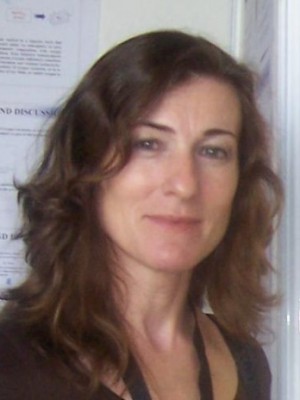abstract
Engineered nanomaterials (ENMs) have been introduced into the market for a wide range of applications. As per the literature review, the fabrication of new generations of ENMs is starting to comply with environmental, economic, and social criteria in addition to technical aspects to meet sustainability criteria. At this stage, identification of the appropriate criteria for the synthesis of ENMs is critical because the technologies already developed at the lab scales are being currently transferred to pilot and full scales. Hence, the development of scientific-based methodologies to identify, screen, and prioritize the involved criteria is highly necessary. In the present manuscript, a fuzzy-Delphi methodology is adopted to identify the main criteria and sub-criteria encompassing the sustainable fabrication of ENMs, and to explore the "degree of consensus" among the experts on the relative importance of the mentioned criteria. The "health and safety risks" respecting the equipment and the materials, solvent used, and availability of "green experts" were identified as the most critical criteria. Furthermore, although all the criteria were identified as being important, some criteria, such as "solvent" and "raw materials cost", raised a lower degree of consensus, indicating that various "degrees of uncertainties" still exist regarding the level of importance of the studied criteria.
keywords
LOW-COST SYNTHESIS; GREEN SYNTHESIS; SILVER NANOPARTICLES; ROOM-TEMPERATURE; RISK-ASSESSMENT; LARGE-SCALE; SONOCHEMICAL SYNTHESIS; OCCUPATIONAL-EXPOSURE; COPPER NANOPARTICLES; HIGHLY EFFICIENT
subject category
Environmental Sciences & Ecology; Public, Environmental & Occupational Health
authors
Khalaj, M; Kamali, M; Aminabhavi, TM; Costa, MEV; Dewil, R; Appels, L; Capela, I
our authors
Projects
Collaboratory for Emerging Technologies, CoLab (EMERGING TECHNOLOGIES)
CICECO - Aveiro Institute of Materials (UIDB/50011/2020)
CICECO - Aveiro Institute of Materials (UIDP/50011/2020)
Associated Laboratory CICECO-Aveiro Institute of Materials (LA/P/0006/2020)
acknowledgements
Thanks are due for the financial support to CESAM - Centre for Environmental and Marine Studies, POCI-01-0145-FEDER-007638 (FCT Ref. UID/AMB/50017/2020) , and to the project CICECO-Aveiro Institute of Materials, UIDB/50011/2020, UIDP/50011/2020 & amp; LA/P/0006/2020, financed by national funds through the FCT/MEC (PIDDAC) . Thanks, are also due to FCT for the doctoral scholarship No. SFRH/BD/140873/2018 for the first author. T.M. Aminabhavi thanks the KLE Technology University for the facilities provided. Additionally, thanks are to the experts who participated in the survey.



